Zuzu’s Petals—Long Beach’s (rightfully and) wildly popular brunch space on the easternmost edge of DTLB—is surely surrounded by beauty. Plates of wonderfully cooked omelettes—no browning, no rubberiness; just a soft pillow—stuffed with lobster and Boursin- are an homage to Chef Ludo Lefebvre’s locally famous version at Petit Trois. Plates of seasonal pancakes—like their sweet potato one featured in the fall—that are as Instagrammable as they are requested out of season. Outright sexy steak’n’eggs, with a ribeye cut and layered atop a hollandaise spread.
To add to that beauty, owners Evan Papadakis and Jessie Franco are persistently present with a deep sense of what it means to be hospitable. It is not uncommon for them to know a vast number of patrons’ names. They will walk down the line—easily wrapping around onto Lime above 3rd Street on weekends—to touch people, ask them how they’re doing, and assure them they’ll be seated and eating soon.
“There is genuinely no better feeling than feeling like the community is embracing you,” Jessie said. “For me, there’s an intimacy there knowing people’s names, pet names, and food preferences. And that is because I know Zuzu’s Petals provides some respite from whatever they may be going through—be it big or small—or just wanting to enjoy life. Given Evan’s story, it’s pretty befitting for this little pocket we’ve created.”
Zuzu’s is wrapped in gorgeousness. And that gorgeousness stems from an equally gorgeous mix of tragedy, struggle, resilience, and purpose.
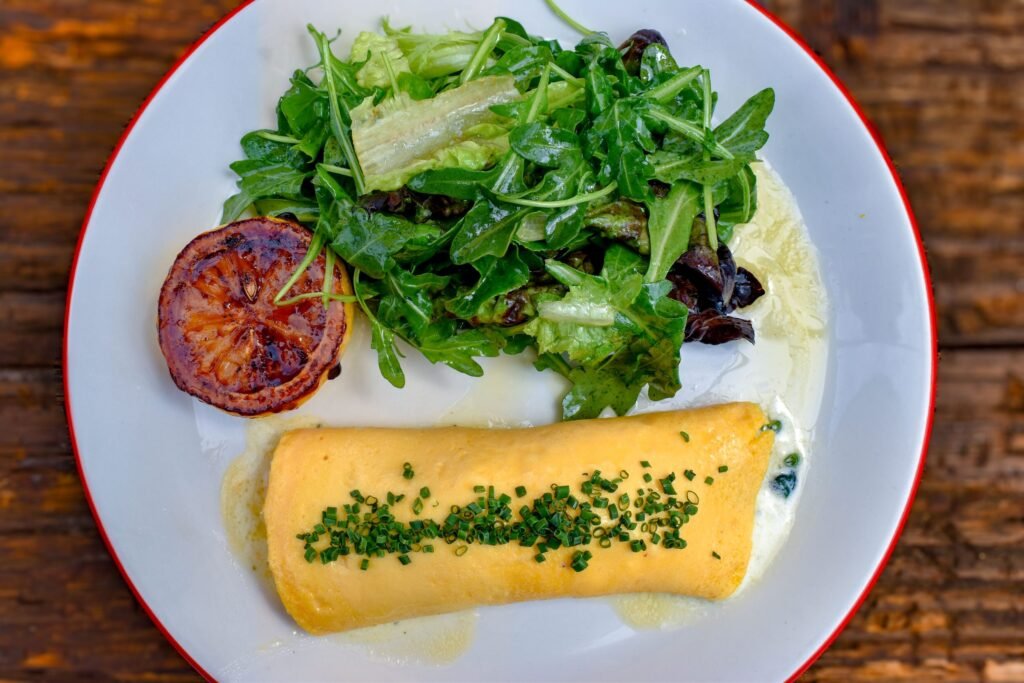
For co-owner Evan Papadakis, the world of food and hospitality—metaphorically and literally—have deep roots.
The closure of Papadakis in 2010—when Evan was in college—profoundly affected the family and San Pedro. The decades-long staple—frequented by everyone from Frank Sinatra to Tom Hanks—was firmly grounded in being big, brash, and bold. Just like the Papadakis family. Fires from saganaki being lit highlighted the smiles of patrons. Children performing Greek dances with their Uncle John were not uncommon.
And for Evan, the space was rooted in his identity: his progression in education matched his professional evolution at the restaurant. From prepping vegetables in elementary to cleaning in middle school to outright cooking and serving in high school… So one could find it shocking when his family, led by his father Tom, was outright against the kids taking on the space.
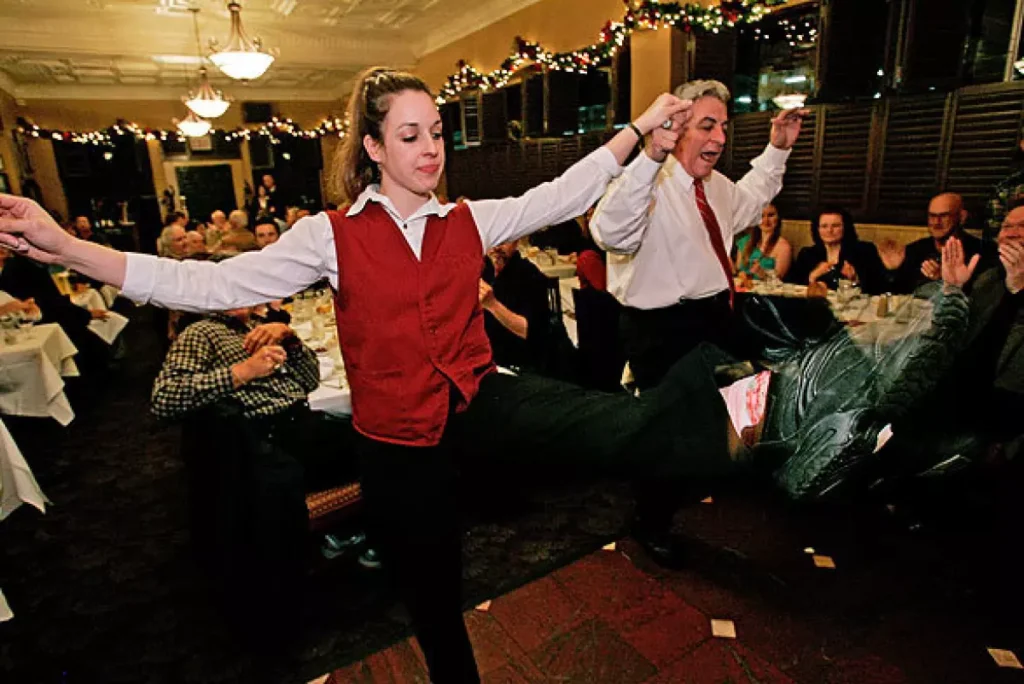
“Contrary to the immigrant mentality some might assume, they told us, ‘Do not do this,'” Evan said. “‘You are insane to go into this business. Go to school. This. Is. Not. For. You.’ So we did just that.”
Evan—like many of his siblings and cousins—went off to school. Of course, the hole of Papadakis was always there, as was Evan’s love of hospitality. So he directed it toward something he deeply related to: addiction. For nearly a decade, he worked as a social worker that had a very specific focus: anxious, depressed, traumatized young men who had little support let alone a stable inner compass.
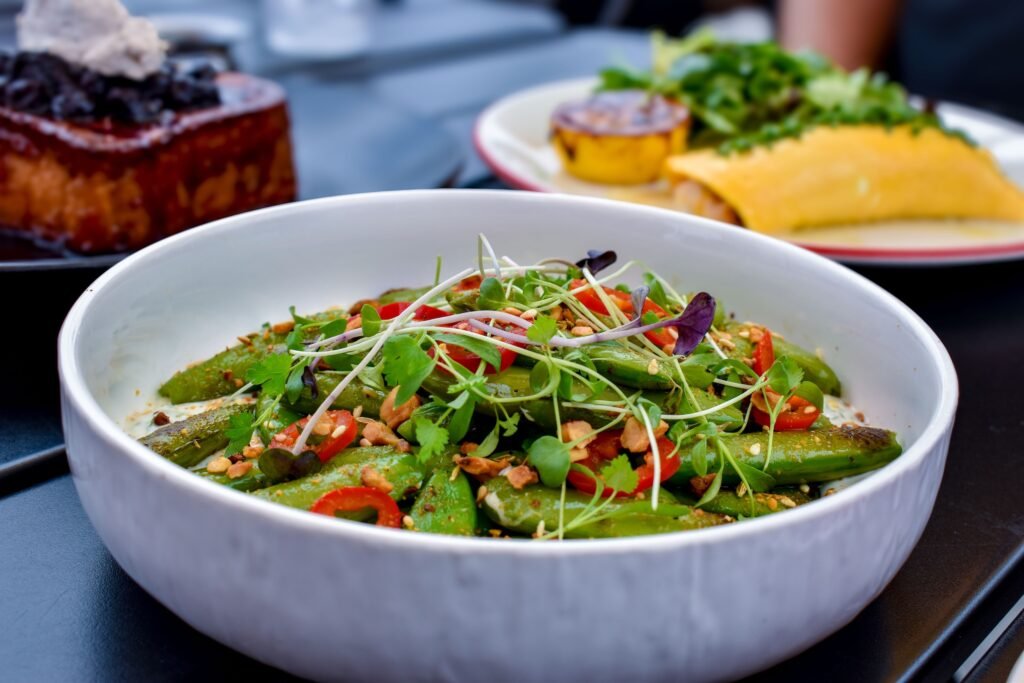
The fruition of Zuzu’s Petals is bound by the idea that your spirit is not necessarily your profession. It’s how you want to act in the world.
Evan’s work in addiction therapy was beautifully fulfilling. He worked with one-on-ones. Groups. Couples, and patients, in a sense, became extended family. The community recognized his work, with the patrons of the Cove Cafe—the restaurant owned by Jessie below his private practice office in Palos Verdes Estates—knowing Evan’s happy face.
“We were cruising: My practice was soaring, my name was out there, I was respected,” Evan said. “And that practice was my shit. I was there for them: ‘Let’s go. I got your back. Let’s work through. Think about things differently than our modus operandi. Let’s raise the bar for self-soothing and get some systems in place.’ I would work closely with their families to promote change outside the office. They’re good, I’m good, we’re good.”
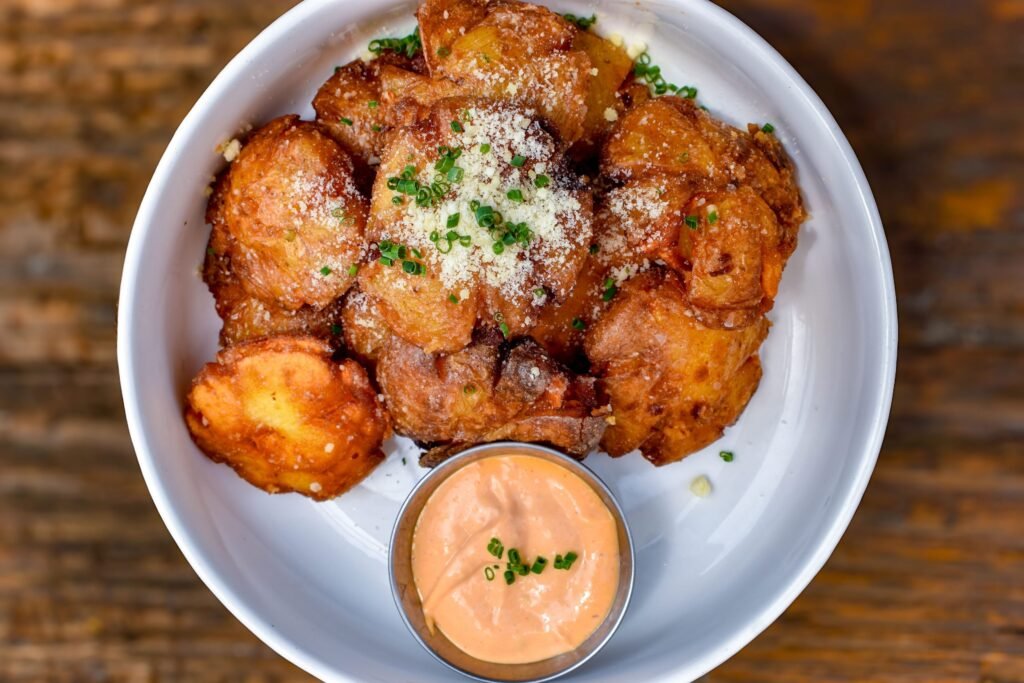
In a way that only tragedy could prove serendipitous, a grave health scare—an auto-immune response to a virus that could have killed Evan—did what it would do to many humans. And that is to reevaluate their life, values, and choices. So he bought a 1969 Camaro. “I’m not gonna wait until I am old and I can’t get in and out of one,” Evan said, a comment that would prove prescient. And come 2019, he would find himself hydroplaning into oncoming traffic, his ribcage outright folding the steering wheel inward upon impact. His sternum was broken in half.
He would spend two weeks in ICU, entirely removed from consciousness, and over a year—going into a pandemic, no less—recovering and finding little inspiration for and about life.
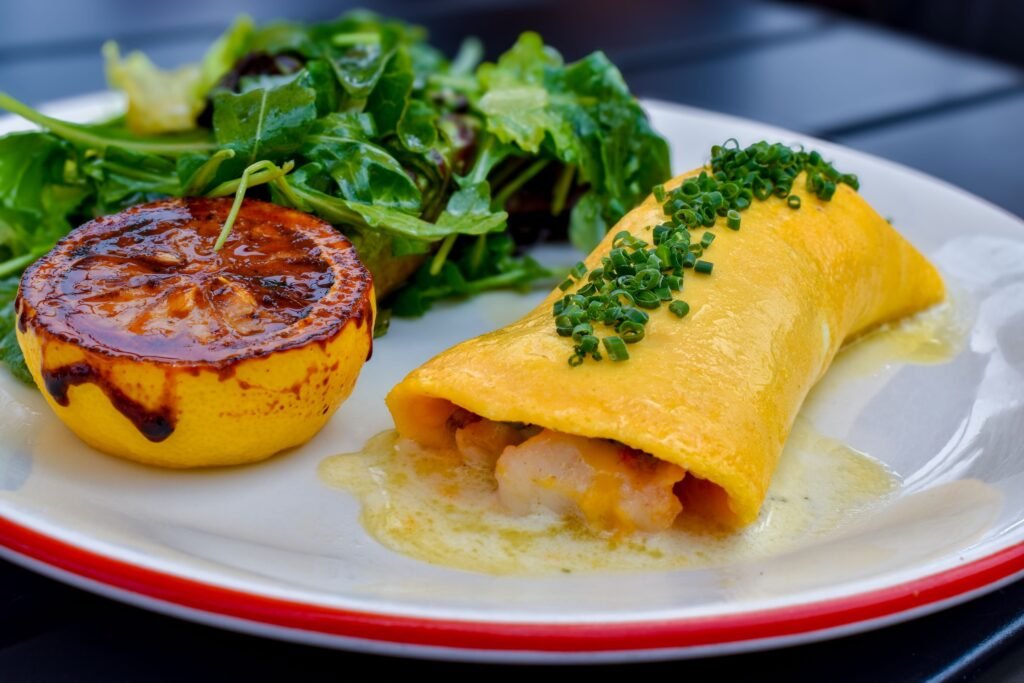
The birth of Zuzu’s Petals.
Unable to hold his daughter for months. Unable to work at the same time. Evan rightfully found himself in a dark, deep rut—and only forced himself to work—for income; not because it was the right thing to do to realize the care he should be giving his patients has been crushed much like his ribcage. The fracture of his vertebrae at C2? A minuscule distance from paralysis. Internally bleeding out of his aorta. This consistently played through his head, over and over.
“I was taken to a place I’d never been,” Evan said. “I had a graduate-level, PhD course in desperate depression; the despairing depression. The pending doom feeling for months. Asking yourself, ‘What was the point?’ I’m recalibrating everything about my life to the extent of wondering if it was even beneficial to have survived that accident.”
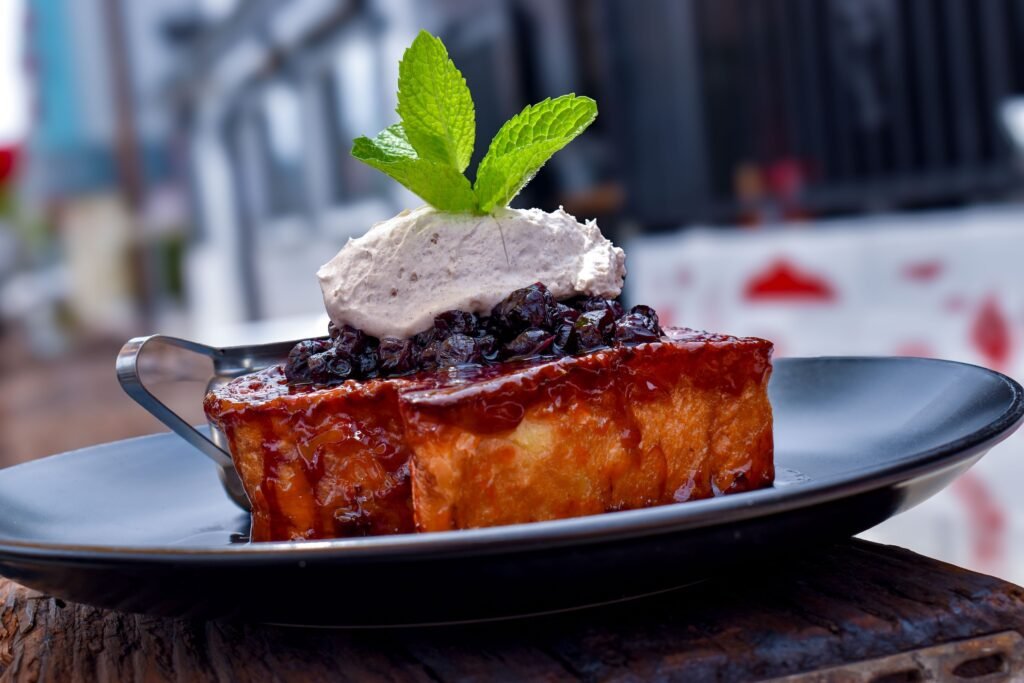
This story is not told easily: Evan rightfully tears up, Jessie looks on, and never hesitates to touch his shoulder softly.
“I sit in a month of I Can’t Do This,” Evan said. “Therapy and my practice just can’t happen. And—shit you not—I am sitting there in my sad little practice and I can’t just sit on the couch feeling sorry for myself—the very couch people sat on and felt sorry for themselves and I helped them work it out. And then it hit me: I’ve been talking to Jessie for years about what he wants to do next.”
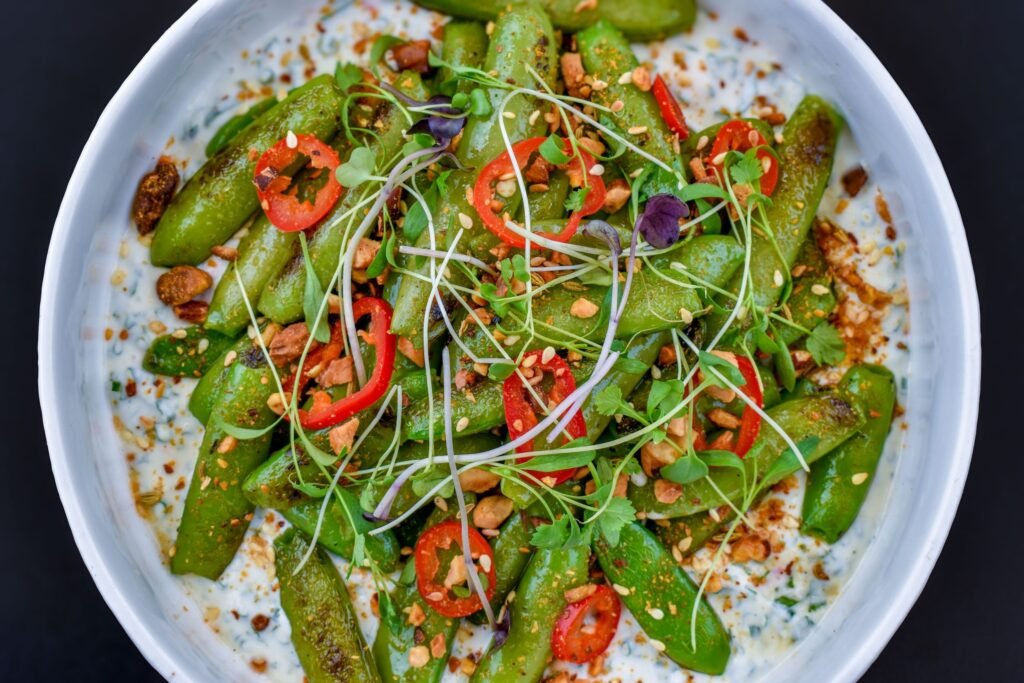
The birth of Zuzu’s Petals.
Jessie’s cafe was just below Evan’s practice, and in a sense, Jessie witnessed Evan’s shift in real time. Moving to a larger operation was always at the top of Jessie’s mind. Young and driven, he wanted a place outside of the sleepy cafe and town he was in.
“Evan came up to me with this idea and, I have to be honest, I wasn’t immediately on board,” Jessie said, laughing. Burnt by previous, unfulfilled promises from others, Jessie was holding his guard up while Evan realized that he wanted to continue interacting and engaging with people. He just wanted to do it on a level that wasn’t so clinical, ominous, and heavy.
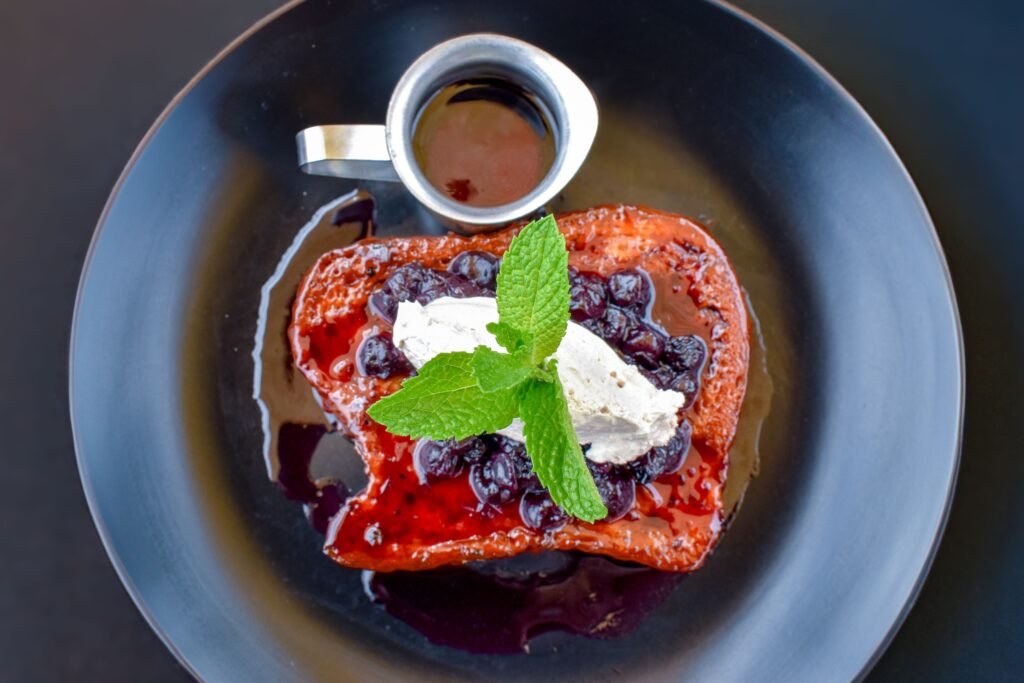
But Evan’s authenticity allowed Jessie to step forward cautiously. Scouting nearly everywhere—Torrance, Lomita, Seal Beach…—they stumbled upon their current space when Steamed formally shuttered. They built out an entirely new kitchen. They were honing in on their menu. But what about the damn name?
“‘It’s a Wonderful Life’ was always playing at my house—we loved those old movies, man,” Evan said. “But it wasn’t until I got this second chance that I realized I am just like George Bailey in that movie. I had Zuzu’s rose petals in my pocket to remind me that I am on this earth to lift people. To take care of them in some sense. And I am proud of that.”
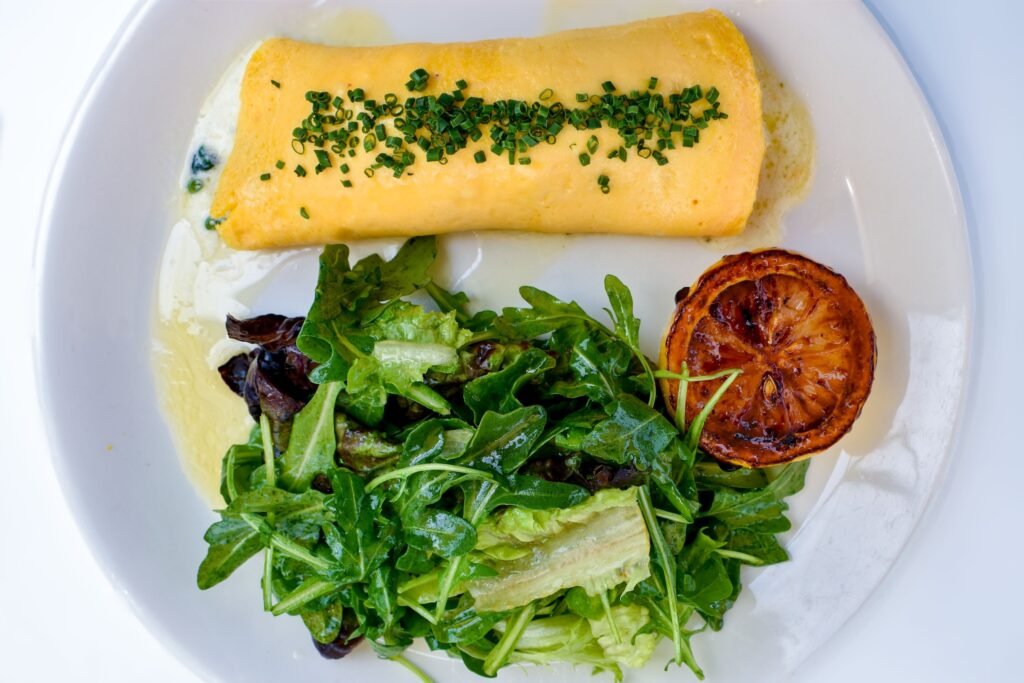
The food of Zuzu’s Petals is one that stands with the evolution of brunch and breakfast here in Long Beach.
Long Beach has always had one helluva brunch and breakfast scene. Whether it be the early days of The Potholder, the second wave of spaces like Coffee Cup Cafe and Starling Diner, or the current wave of The Breakfast Bar and The Attic, Zuzu’s Petals is part of that evolution. Its food harkens to a simultaneous contemporaneousness mixed with comfort, where quality is clutch and the basics are executed with care if you want to escape the less common.
And for coffee lovers, reason to rejoice: They will soon cross over to Counter Culture.
“Daniel [ of Counter Culture] has proven that their wrap-around service? It really supports all aspects of what we’re trying to do with their beans. It allows us to be properly trained up in order to have the qualituy and consistency we feel is our obligation.”
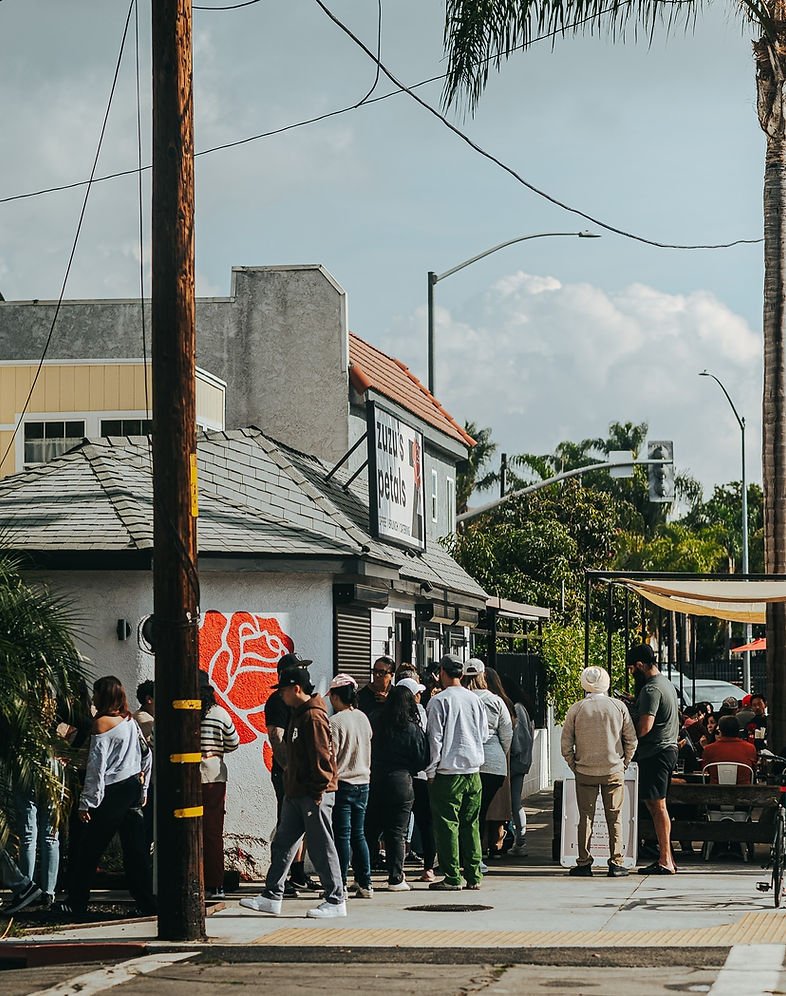
Ultimately, it’s not about grand memories but making people
“Service is one part of hospitality, right?” Jessie said. “Giving the food is the least someone can expect. And we try to look at these little ways to push past that boundary we’ve labeled Expectations.”
One such great example was a table sitting shortly before I was seated. A small crew of friends drove back up to San Francisco after looking to move to Long Beach. Ever the suave front-facer, Jessie handed them a bag of granola and their receipt. A snack for the road in the hopes that, should they move here, they’ll return to Zuzu’s Petals.
“They might not remember what they ate but they will remember how you treated—what’s up, Barney?” Evan interjects while telling the story of the S.F. crew, waving to a passerby. “Did you try to call me earlier? Forgive me—I’ll be right back.”
Evan gets up with Barney while Jessie picks up without a beat: “It’s about going beyond base hospitality and creating that connection.” And a few short minutes later, Evan is back: “So it’s not about if they remember what they eat but creating a connection.” Their synchronicity is not lost—and it acts as a beautiful reflection as to why Zuzu’s Petals is so damn (and rightfully) successful.
Zuzu’s Petals is located at 801 E.3rd St.



Beautiful profile, Brian.
I was way too late discovering Papadakis Taverna; had a dozen wonderful meals there and a great night each visit. I understand how fate takes one in unpredictable directions, but if one has the desire to serve others, it can take many forms…they just seem to reveal themselves. Congratulations to Evan and Jessie. I’ll be in that crowd soon, waiting to eat my way through the menu!